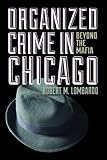Support H-Net | Buy Books Here | Help Support the NBN and NBN en Español on Patreon | Visit New Books Network en Español!
- African Studies
- African American Studies
- American Politics
- American Studies
- American South
- American West
- Asian American Studies
- Australian and New Zealand Studies
- British Studies
- Canadian Studies
- Caribbean Studies
- Central Asian Studies
- Chinese Studies
- East Asian Studies
- Eastern European Studies
- European Politics
- French Studies
- German Studies
- Iberian Studies
- India Studies
- Indian Ocean World
- Iranian Studies
- Irish Studies
- Israel Studies
- Italian Studies
- Japanese Studies
- Korean Studies
- Latino Studies
- Latin American Studies
- Mexican Studies
- Middle Eastern Studies
- Native American Studies
- Pacific Studies
- Polish Studies
- Russian and Eurasian Studies
- Southeast Asian Studies
- South Asian Studies
- Turkish Studies
- Ukrainian Studies
- Western European Studies
- World Affairs
- Animal Studies
- Anthropology
- Archaeology
- Business, Management, and Marketing
- Media
- Critical Theory
- Disability Studies
- Drugs, Addiction and Recovery
- Education
- Economics
- Finance
- Geography
- Gender Studies
- Genocide Studies
- Higher Education
- Human Rights
- Journalism
- Language
- Law
- LGBTQ+ Studies
- National Security
- Philanthropy
- Philosophy
- Policing, Incarceration, and Reform
- Political Science
- Politics & Polemics
- Public Policy
- Sex, Sexuality, and Sex Work
- Sociology
- Sound Studies
- Sports
- Urban Studies
- Big Ideas
- Celebration Studies
- Co-Authored
- Cover Story
- Historical Materialism
- History Ex Silo
- Interpretive Political and Social Science
- Invested Investor
- Landscape Architecture
- Late Antiquity
- Mormonism
- NBN Book of the Day
- NBN Seminar
- Postscript: Conversations on Politics and Political Science
- Practical History
- Preparing for Life After Grad School
- Psychology and Climate Change
- Syriac Studies
- The Chair: In The Room at the Fed
- New Books with Miranda Melcher

Jun 19, 2013
They Wished they were Honest
The Knapp Commission and New York City Police Corruption
Summary
Anyone who studies police corruption will be aware of the Knapp Commission that examined allegations of police corruption in New York City in the 1970s. Not only was this famous because of the movie Serpico, but also most of the terminology used in corruption studies of police came from the report of the commission. Michael F. Armstrong was the chief counsel to the commission and this book is a history of the formation and operation of the inquiry. Holding a major commission of inquiry is not something that is done routinely. In his own words, Armstrong says they "fumbled" along working out how one discovers, let alone investigates corrupt police.
They Wished they were Honest: The Knapp Commission and New York City Police Corruption (Columbia Press, 2012)reads like an extended episode of The Wire, combining political elements with investigative planning and transcripts of surveillance recordings of bribe negotiations. It is very revealing of the nature of corruption that existed at the time. The book follows some key from Xavier Hollander, the Happy Hooker, through small time corrupt officers (grass eaters) through to hardcore predatory corrupt police (meat eaters). Not only does Armstrong provide an entertaining history of the inquiry but he reveals the full gamut of social forces that make such inquiries difficult to implement successfully. Police corruption is an essential factor in any form of large scale illicit activity, be it prostitution, gambling or drugs. Police have a service to sell, namely protection, and there are many illegal operators who are willing to pay for it to ensure their business runs without interruption. While the Knapp Commission happened 40 years ago, the corruption still exists at varying levels in all communities. Armstrong's book helps us understand how and why it happens and, especially, how difficult it can be to stop.



































































































